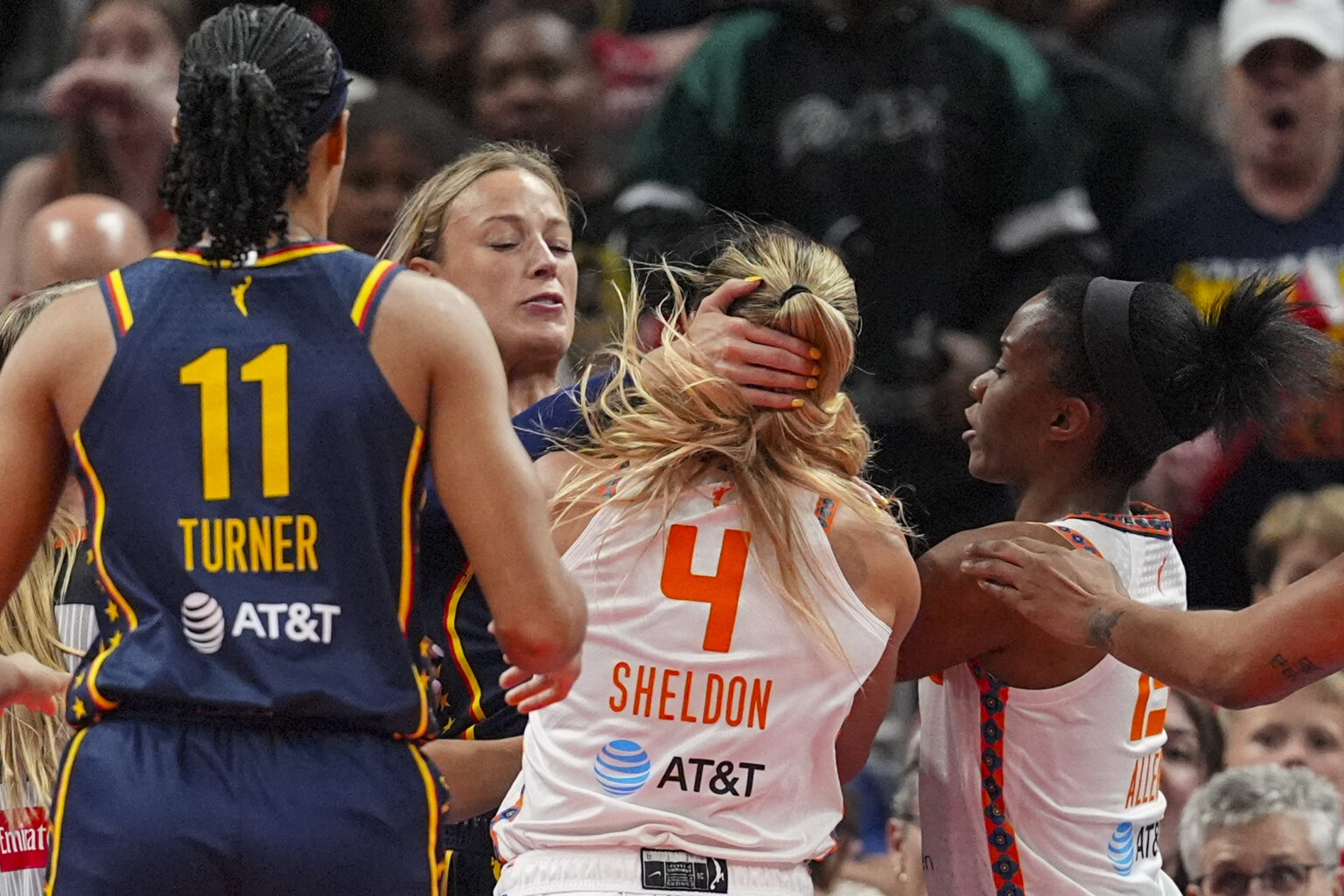Officiating Woes Cast Shadow Over WNBA Showdown in Indianapolis
INDIANAPOLIS – Unlike the usual scenes of young fans clamoring for autographs or sporting jerseys emblazoned with their favorite players, Tuesday night’s game between the Connecticut Sun and Indiana Fever unfolded under a different spotlight-one cast by questionable officiating. No enthusiastic cheers for referees or signs praising their calls were visible in the crowd. Instead, the focus shifted to the officials’ apparent inability to manage the game’s escalating physicality.
Referees Under Scrutiny Amid Rising Physicality
This game highlighted a growing concern within the league: the disconnect between the game’s evolving intensity and the officials’ capacity to keep pace. As the players become faster, stronger, and more skilled, the referees seem to lag behind, often missing critical infractions. The night’s incidents, including heated exchanges and physical altercations, underscored this disparity. The referees’ failure to call fouls early on allowed tensions to simmer, culminating in a series of confrontations that could have been mitigated with more vigilant officiating.
Clashes on the Court: A Sign of Frustration
The evening’s turmoil began with a skirmish involving Sun veteran Marina Mabrey and Fever’s Caitlin Clark. Later, a contentious altercation erupted between Fever guard Sophie Cunningham and Sun’s Jacy Sheldon. Clark, known for her resilience and physicality, was involved in multiple confrontations, including a shove that went unnoticed by the officials. Her aggressive playstyle, which includes absorbing contact and retaliating physically, was on full display, yet the referees failed to intervene appropriately.
One particularly notable incident involved Sheldon pushing Clark in the face while Clark was dribbling with her back to the defender. Clark instinctively reacted, grabbing her eye and pushing Sheldon away. Mabrey and Tina Charles quickly intervened, but Mabrey’s aggressive push into Clark drew boos from the crowd and social media backlash. Instead of issuing a direct ejection for Mabrey’s excessive contact, the officials opted for a technical foul after a lengthy review, a decision that many felt was too lenient given the circumstances.
The Consequences of Lax Officiating
Indiana Fever head coach Stephanie White voiced her frustration, emphasizing that the game’s physicality is a reflection of the players’ skill and competitiveness, which should be matched by the officials’ vigilance. “Players are faster, stronger, and more skilled than ever,” White remarked. “But the officiating hasn’t kept up. When officials don’t maintain control, chaos ensues.”
White’s concerns are echoed league-wide. The league’s officiating has come under increased scrutiny, with recent incidents highlighting the need for improvement. For example, star players like Brittney Griner and A’ja Wilson have suffered injuries due to missed foul calls, raising alarms about player safety. Griner, during a recent interview, openly criticized the officiating, urging officials to “be f—— better,” after noticing two referees leaving the court without calling fouls on clear contact.
Safety and Fair Play in the Paint
The physical nature of the WNBA’s game demands strict officiating, especially in the paint, where collisions and aggressive plays are commonplace. In the first half alone, players like Kelsey Mitchell and Lexie Hull endured rough contact, yet fouls were inconsistently called. As the game progressed, the violence inside the key intensified, culminating in a late-game melee involving multiple players grappling and falling to the floor.
Social media erupted with praise for Cunningham’s stand in defense of Clark, but her retaliation-pushing Sheldon and inciting a fight-highlighted the dangerous environment players are expected to navigate. Such incidents underscore the urgent need for referees to better manage the game’s physicality, ensuring safety and fairness for all participants.
League-Wide Concerns and Player Safety
The issues extend beyond individual games. Recent weeks have seen high-profile injuries and confrontations, prompting league officials and players to call for immediate reforms. A prime example is A’ja Wilson, who sustained a concussion after an elbow to the face that went uncalled, causing her to miss multiple games. Coach Becky Hammon of the Las Vegas Aces expressed her frustration, emphasizing that the league’s physicality must be managed more effectively to prevent injuries.
“We’re seeing too many players dropping due to head injuries,” Hammon stated. “It’s not about trying to hurt anyone, but the game has become vicious at times. Officials need to step up and protect the players.”
Stars’ Responses and the Future of Officiating
Despite the chaos, Caitlin Clark remained a symbol of resilience. Before leaving the game with just under four minutes remaining, she hit a three-pointer that extended her team’s lead and celebrated with a fierce display of strength and emotion, including a primal scream directed at the Sun bench. Clark’s attitude exemplifies the competitive spirit that fuels the league, but her safety and the integrity of the game depend on better officiating standards.
While players like Wilson may be considered league MVPs, Clark has become a crossover star, captivating fans with her skill and tenacity. However, her potential to suffer injuries due to poor officiating remains a concern. The league must address these issues promptly to preserve the sport’s integrity and ensure a safe, fair environment for its athletes.
As the WNBA continues to grow in popularity and competitiveness, the need for improved officiating is more urgent than ever. Without it, the league risks undermining its progress and alienating its dedicated fanbase. The time for change is now-before the game’s reputation is permanently tarnished by avoidable controversies and injuries.

